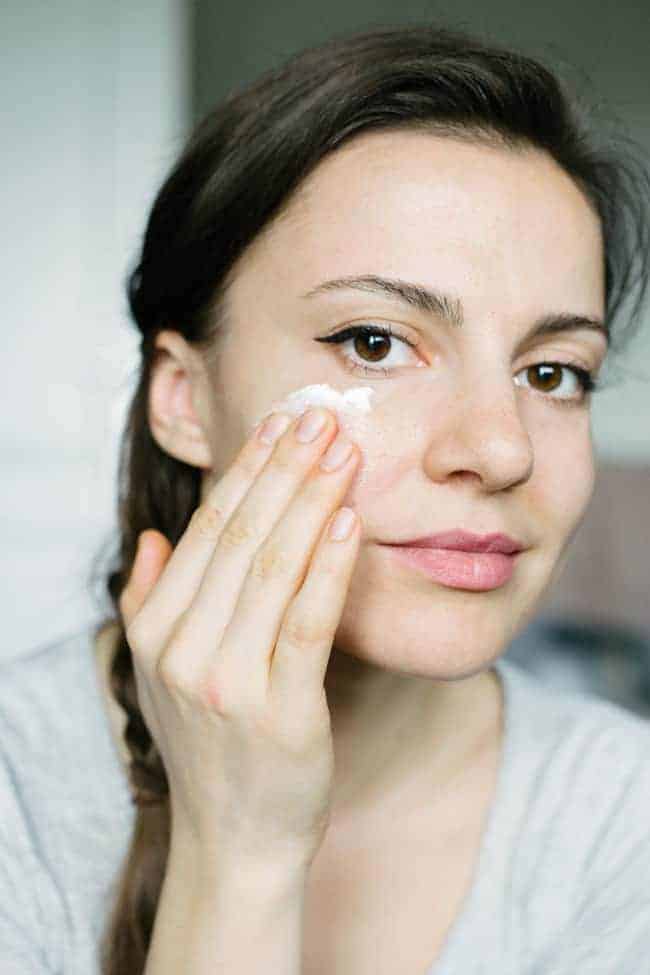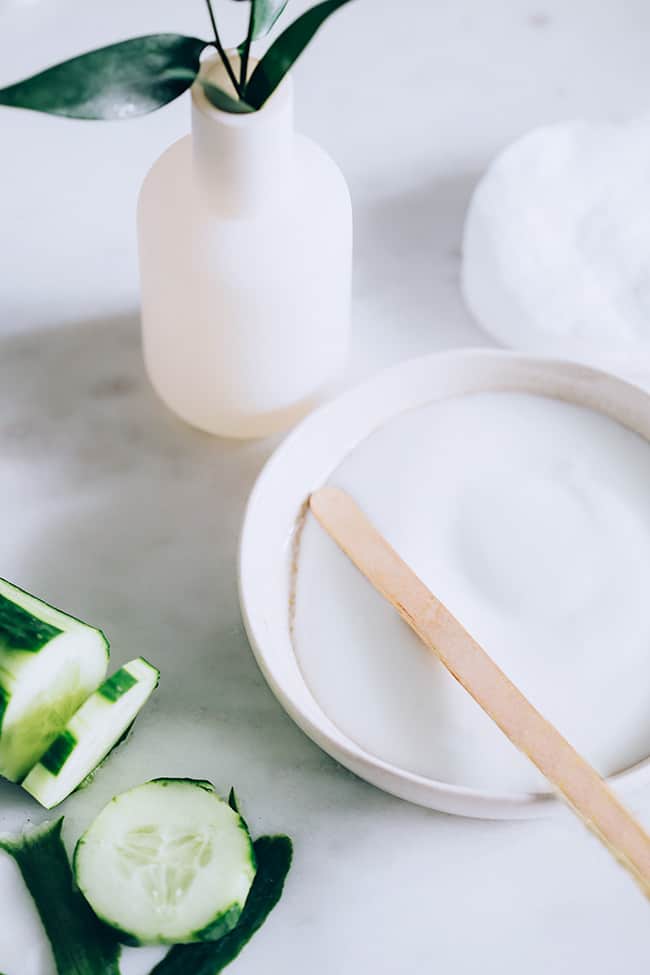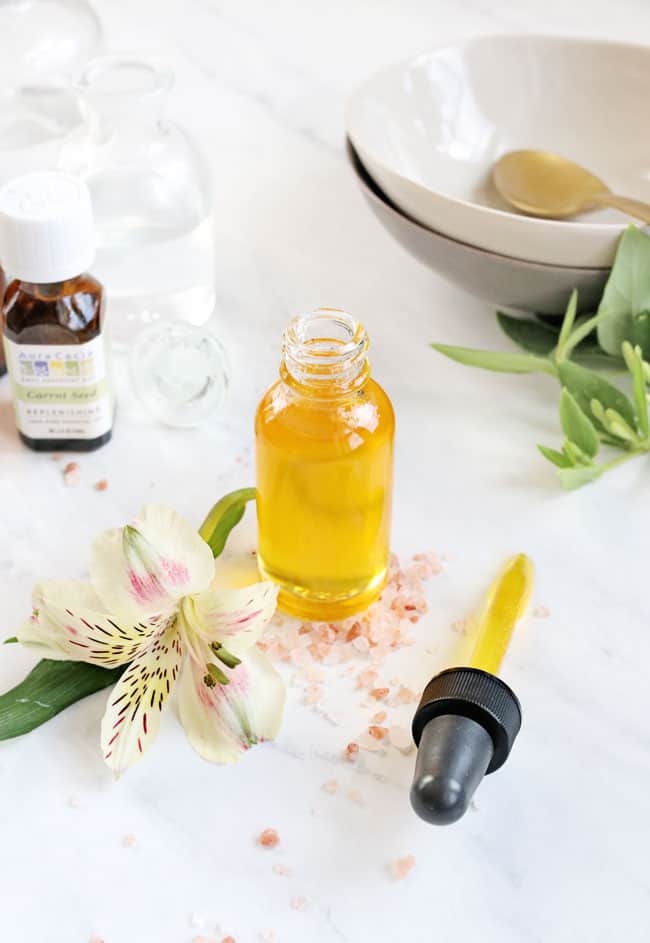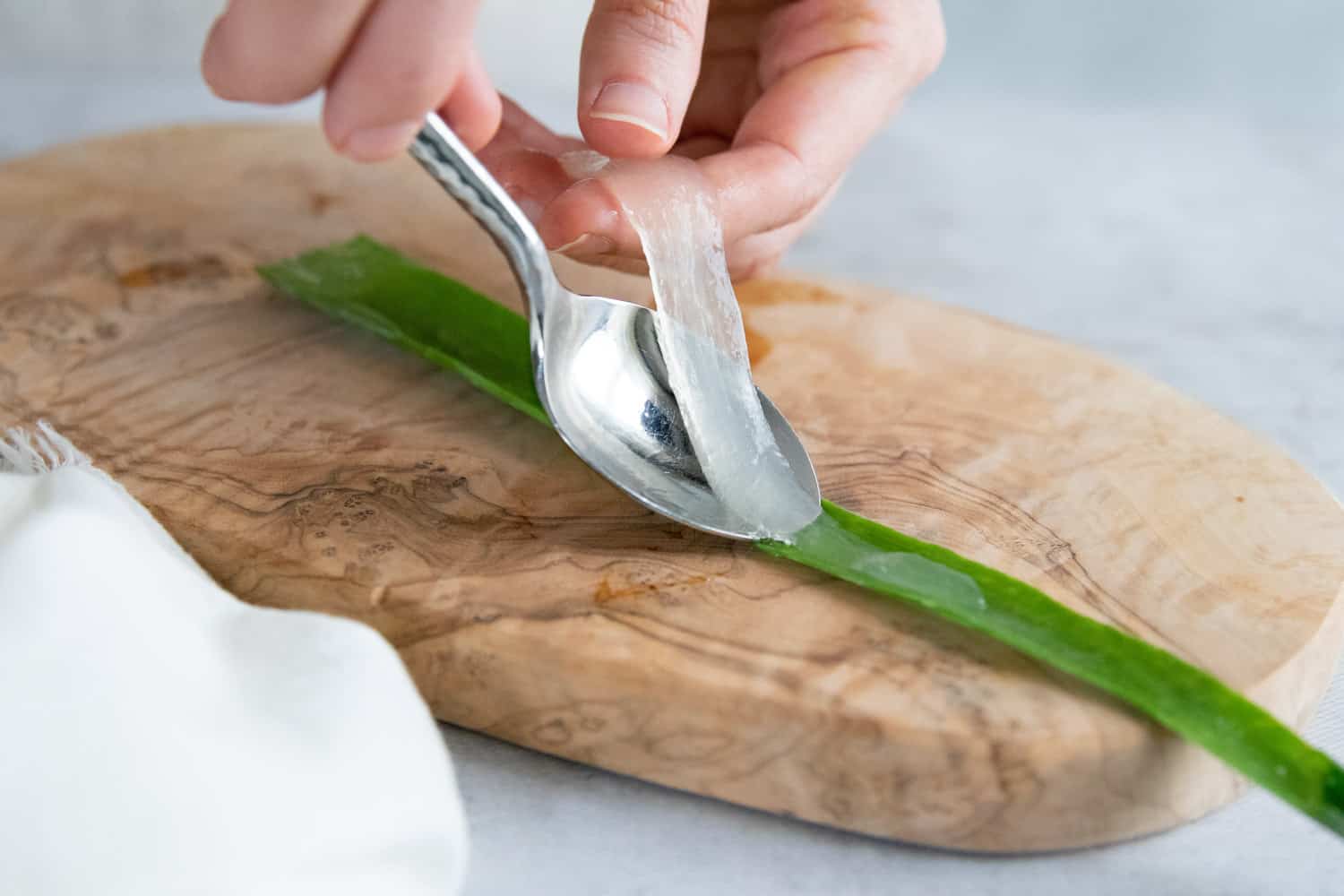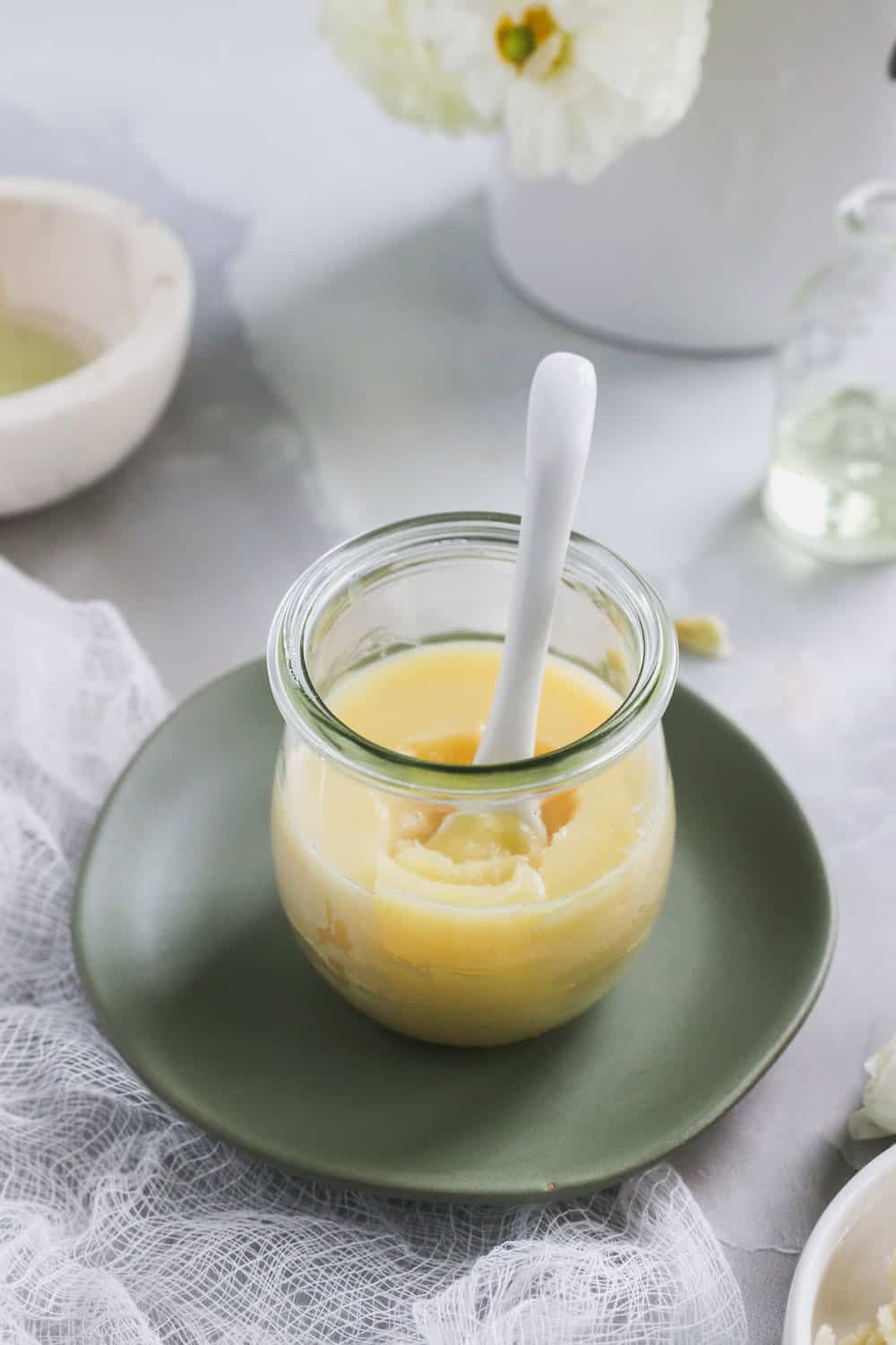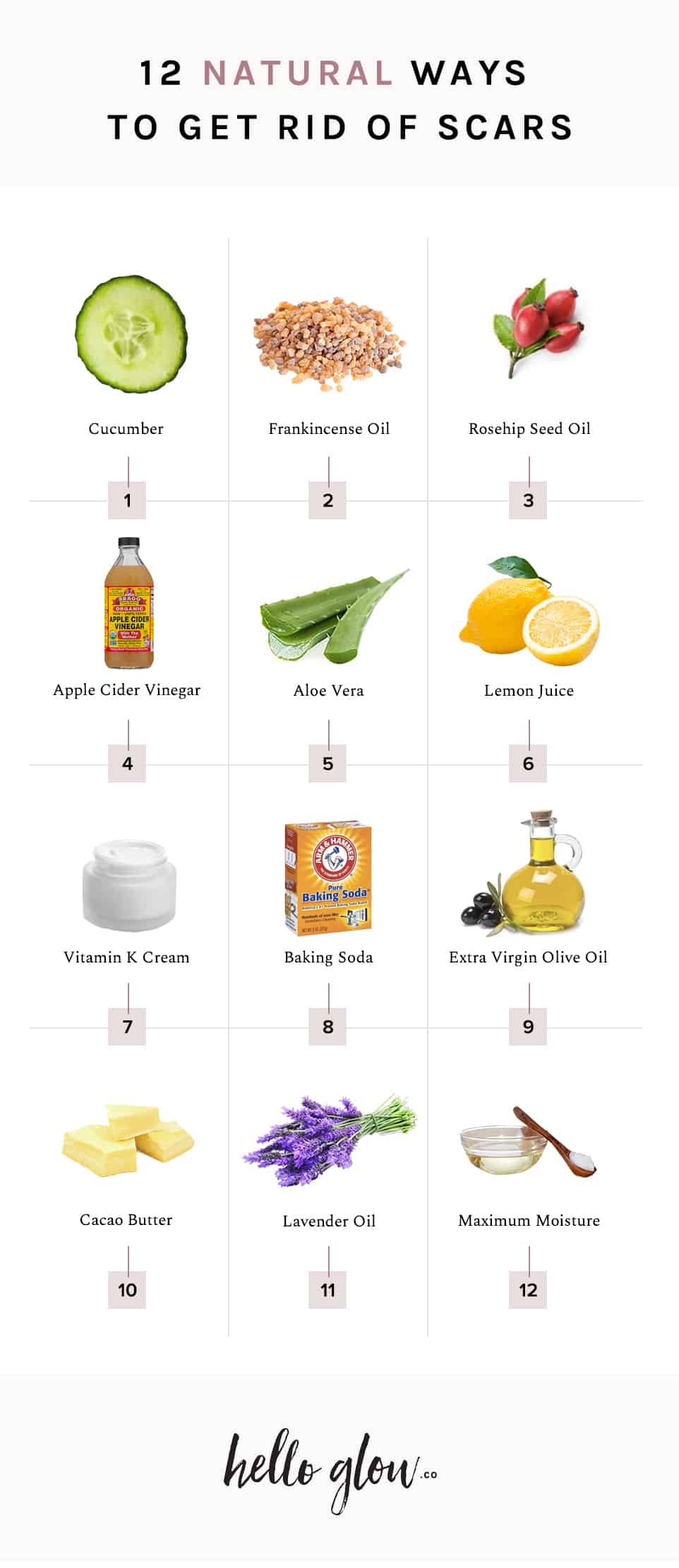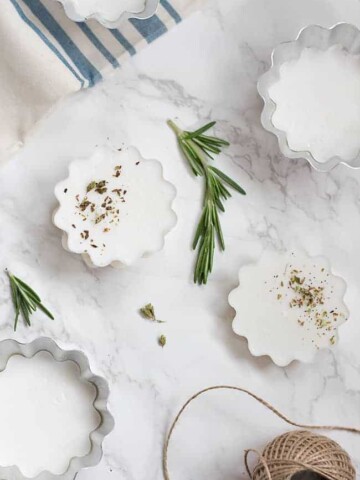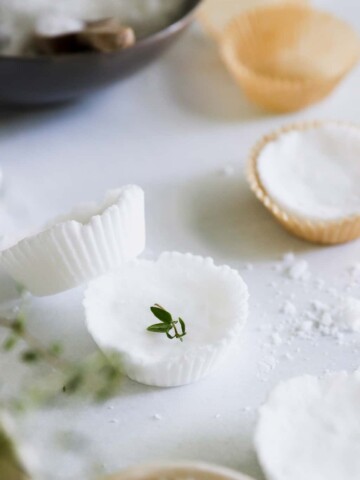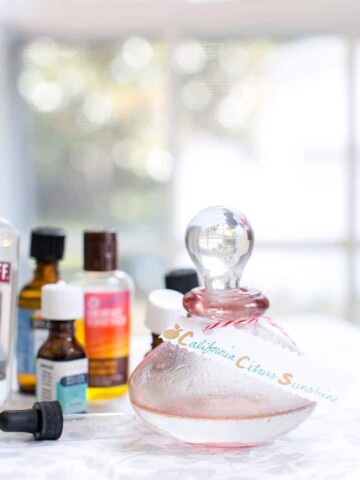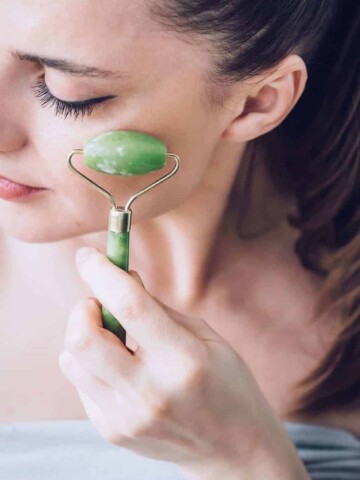Most of us can say we have at least a scar or two that we're not quite keen about and may have been trying to get rid of ever since the injury that spawned it. I've got a few from having chickenpox 25+ years ago, one from accidentally stabbing myself while whittling a piece of wood, another from a nasty steam burn while working in a coffee shop, and yet another from slipping on a dock and gouging my ankle. And those are just the ones I notice on a daily basis. Not only are these not-so-great memories I'd rather not have tattooed on my body, but they're also a little unsightly. These natural scar remedies work just as well—if not better!—than expensive store-bought creams.
Meet the experts
Molly Stanton, an experienced esthetician and the owner of Sage Lane Skincare in Santa Monica
Enrizza Factor, M.D., a board-certified dermatologist
Olivia Rose, N.D., a naturopathic doctor and the medical director of Rose Health Clinic in Toronto
What are scars?
Scars are normal skin reactions that form when there is damage to the dermis (the deep thick layer of the skin), explains Molly Stanton. "When the tissue is wounded, cells called fibroblasts produce collagen to mend and repair the injury by creating new tissue that has a different texture and quality than the surrounding skin," she explains.
Types of scars
There are different kinds of scars. Most are flat and relatively pale compared to the rest of your skin. However, others can be sunken and pitted, which is often seen with acne scarring, Stanton points out.
There are also raised scars known as keloids or hypertrophic scars, which can develop after burn injuries, cuts, piercings, or acne, notes Dr. Factor. She defines hypertrophic scars as a milder form of keloid scars that don’t extend beyond the boundaries of the skin that sustained the initial injury.
How the scar heals may also depend on where it is on the body. For example, wounds in places where there is constant movement will, of course, take longer as the tissue is being pulled and stretched constantly, according to Stanton. Additionally, scars frequently exposed to sunlight may be darker and more apparent than the ones hidden under clothing.
If you have scars from cuts and scrapes, injuries, acne, or surgery, chances are nobody else is noticing. But they can often be annoying and make you feel self-conscious anyway. While scars are inevitable (especially if you're clumsy like I apparently am), there are a lot of natural remedies you can use to minimize their appearance.
12 At-Home Scar Remedies
Note that it may take consistent applications—daily is ideal—for results to be noticeable over time.
Putting everyday products into therapeutic use is fun and gives me a good feeling. Who knew that there are so many natural products available to help your body? Though these are not proven scar healers, they each have many beneficial properties to give your skin a good chance of looking its best.
If you have some nasty scars and you're also battling stretch marks (aren't we all?), these scar treatments are natural stretch mark remedies, too!
1. Cucumber
Cucumbers bring with them some anti-inflammatory effects from naturally-occurring phytochemicals called cucurbitacins [source] and the antioxidant effects of flavonoids [source]. Thus, a cucumber mask or lotion can minimize inflammation and possibly even the appearance of scars on the face or body.
Cucumbers also have lightening agents [source] that will help reduce residual redness.
Try this easy combination at home:
—1 peeled cucumber
—1 tablespoon organic Greek yogurt
Puree the cucumber and then mix in the yogurt. Apply the mixture to your face or other affected areas, and leave it on for 10 minutes before rinsing thoroughly. Bonus: You can eat it, too!
2. Frankincense essential oil
This essential oil also has well-known anti-inflammatory properties [source] and helps treat dry skin. It has been used to reverse the signs of aging and reduce the appearance of stretch marks and scars.
3. Rosehip seed oil
Mix frankincense oil with another scar-fighting oil, rosehip seed oil, to make an anti-aging facial oil that also can be used on scars. Rosehip seed oil is high in antioxidants and essential fatty acids that heal damaged and dehydrated skin [source]. It's a “dry” oil, meaning that it soaks into the skin easily and doesn’t leave a greasy residue, so you can use a repair serum just about anywhere on your body.
4. Apple cider vinegar
Dilute ACV with anywhere from 1 to 4 parts water (depending on how sensitive your skin is), and dab or swipe that on using a cotton ball to help fade scars and sun spots. If you have acne-prone or oily skin, try this wonder ingredient in an acne-fighting turmeric-ACV astringent to make use of the antibacterial effects in apple cider vinegar [source].
5. Aloe vera gel
As a scar reducer, aloe vera is accessible and easy to apply, notes Olivia Rose. "If you have an adult aloe vera plant, you can cut a leaf off, scoop out the jelly to apply to your skin, and you can leave it on as long as you wish or wear a thin layer of the jelly to bed," she says. "Consistent use can fade hyperpigmentation, reduce scar tissue size, and give the skin a rejuvenated appearance."
I have to say this worked wonders on my ankle scarring—you can still see some discoloration, but it's not nearly as raised as it used to be.
6. Lemon juice
As another great treatment for acne scars, lemon juice is known for its bleaching action when used in combination with the sun, and it helps to fade any dark discolorations. Combine it with aloe's inflammation-fighting power in an aloe-lemon face pack (you can use it on other parts of the body, too.)
7. Vitamin K cream or serum
Leafy greens are the best natural source of vitamin K, which helps in blood clotting. When it comes to skin, a topical application of vitamin K has been said to help minimize spider veins, bruising, scars, and stretch marks.
Bonus: Eating your kale and collards will help to promote healing from within, too.
8. Baking soda
DIY beauty mavens swear by baking soda for discoloration and acne scars. It's also a gentle exfoliant. It can be massaged around a healed scar to gently scrape off the top layer of skin.
Mix a little water with baking soda to make a paste, and apply it with a very gentle massage into wet skin, then let it sit for 10 to 15 minutes. (Hold a warm compress on it for even better results.)
Bonus: It leaves your skin baby soft afterward.
9. Extra virgin olive oil
EVOO is known for its wound healing ability [source]. It helps loosen dead skin cells and is said to lighten and soften scars. It’s inexpensive and readily available. You can even leave a little olive oil on the affected area overnight for extra moisturizing.
10. Cocoa butter
Cocoa butter (go for organic, raw versions if possible) is a highly concentrated fat that can penetrate deep into the skin to heal, smooth, and soften. Its antioxidants heal and help to prevent the aging effects of UV rays [source]. This cocoa butter balm is great to use if you have larger scars because you can cover a bigger area more easily with a jar of this popular skin butter.
Bonus: It smells like you are on vacation.
11. Lavender essential oil
Lavender oil has been shown to improve collagen synthesis, which is the major building block of healthy skin [source]. In addition to helping treat burns, eczema, and acne, lavender's healing and soothing properties may also help diminish scar tissue.
Lavender is gentle enough for skin that you can apply a couple of drops to the affected area daily (do a small test patch on the inside of your elbow first if you've never used it before).
Bonus: Lavender essential oil is great to diffuse for anxiety and insomnia.
12. Maximum moisture for skin
It’s important to keep the skin moisturized and protected. Natural emollients have lubricating properties that are super soothing to the skin and help minimize the appearance of scars. Try different combinations of oils for the perfect scent and smoothness and to concentrate their antioxidant and softening power on any troublesome spots.
As an example, you can make something like this homemade scar lotion, which contains coconut oil, frankincense, aloe, wheat germ oil, and rosehip oil—a scar-fighting powerhouse.
Once you feel confident creating your own healthy products at home, you may not even want to revisit the drugstore for those chemical-laden moisturizers again!
Scar Treatment FAQs
Can using onions on the skin help the appearance of scars?
Well, sort of. Several recent studies have shown that a gel containing onion extract (along with a few other compounds) placed on a wound right after surgery improves the look of the postoperative scar that will develop [source], preventing keloid scars from forming [source]. One study showed improvement in scars that were already formed after 3 months of treatment with a 5% onion extract gel [source]. And there are several products like this on the market currently that contain onion.
What causes keloid scars, and what can I do to prevent them?
Keloid scars are formed when the collagen fibers in a healing wound form a disorganized pattern due to a dysfunctional healing process. The scars end up looking red, bunched up, enlarged, and uneven. This can happen after any kind of skin injury, and the tendency for them sometimes runs in families. The mechanism is complex but pretty well understood, although why it happens in some cases and not in others is still unknown [source]. A
ccording to the American Academy of Dermatology, there are a few things you can do to prevent them, depending on the situation. Keloids take time to develop, so you’ll want to watch for any sign of abnormal healing or thickening after a wound heals. If you notice this occurring, you can use silicone scar gel or a silicone gel sheet over the scar every day for about 6 months to keep it from enlarging further [source]. You should also keep the area from all sun exposure.
This article was medically reviewed by Dr. Gina Jansheski, a licensed, board-certified pediatrician with more than 20 years of practice experience. Learn more about Hello Glow's medical reviewers here. As always, this is not personal medical advice, and we recommend that you talk with your doctor.
References:
1. Yuan G, et al. Natural products and anti-inflammatory activity. Asia Pac J Clin Nutr. 2006.
2. Serafini M, et al. Flavonoids as anti-inflammatory agents. Proc Nutr Soc. 2010.
3. Smit N, et al. The hunt for natural skin whitening agents. Int J Mol Sci. 2009.
4. Zhang Y, et al. Evaluation of anti-inflammatory activities of a triterpene beta-elemonic acid in frankincense in vivo and in vitro. Molecules. 2019.
5. Mármol I, et al. Therapeutic applications of rose hips from different Rosa species. Int J Mol Sci. 2017.
6. Yagnik D, et al. Antimicrobial activity of apple cider vinegar against Escherichia coli, Staphylococcus aureus and Candida albicans; downregulating cytokine and microbial protein expression. Sci Rep. 2018.
7. Lin TK, et al. Anti-inflammatory and skin barrier repair effects of topical application of some plant oils. Int J Mol Sci. 2018.
8. Scapagnini G, et al. Cocoa bioactive compounds: significance and potential for the maintenance of skin health. Nutrients. 2014.
9. Mori HM, et al. Wound healing potential of lavender oil by acceleration of granulation and wound contraction through induction of TGF-B in a rat model. BMC Complement Altern Med. 2016.
10. Güngör ES, et al. The efficacy of onion extract in the management of subsequent abdominal hypertrophic scar formation. J Wound Care. 2020.
11. Melnyk N, et al. Current knowledge on interactions of plant materials traditionally used in skin disease in Poland and Ukraine with human skin microbiota. Int J Mol Sci. 2022.
12. Napavichayanun S, et al. Evaluating efficacy and safety of the topical silicone gel containing onion extract in the treatment of post-cesarean surgical scars. J Cosmet Dermatol. 2022.
13. Ye Q, et al. Medicinal plants for the treatment of hypertrophic scars. Evid Based Complement Alternat Med. 2015.
14. Keloid scars: self-care. American Academy of Dermatology Association website.
769
